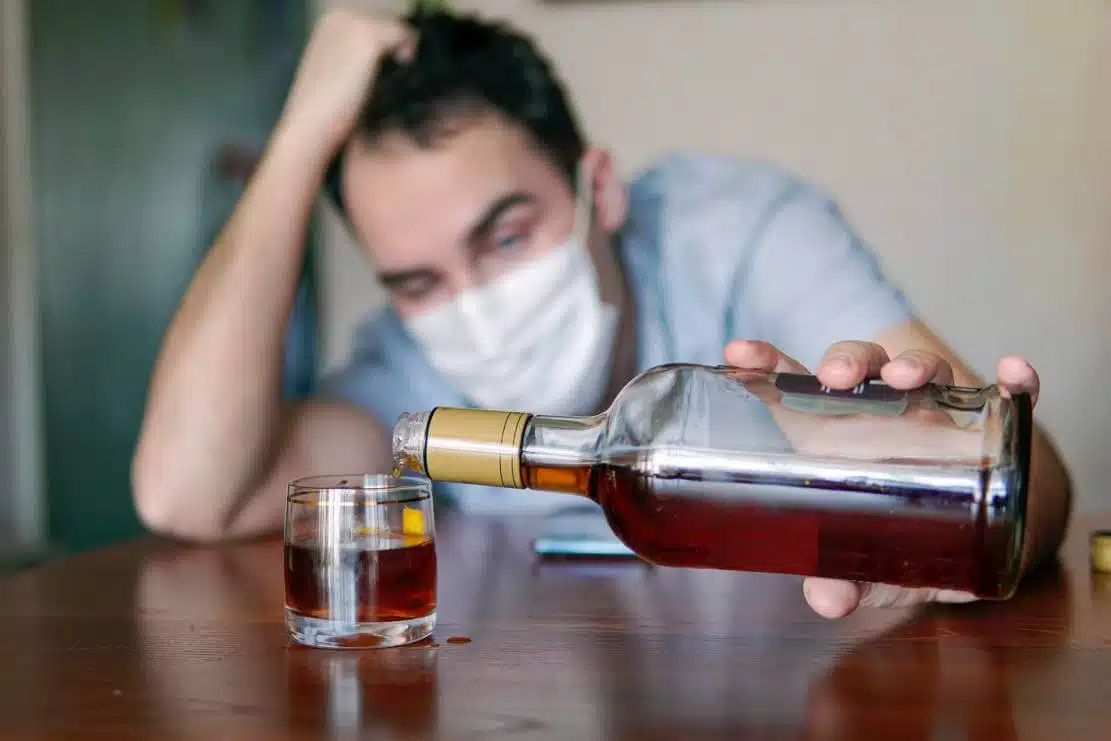Alcohol is a harmful substance, and even before the COVID-19 pandemic, its excessive consumption has been the third leading preventable cause of death in the United States. Excessive drinking elevates the risk of almost all chronic health conditions including cardiovascular disease and diabetes. It has also been associated with increased violence, crime, poverty, sexually transmitted diseases, and other significant public health harms. And with the exceptionally tough year we all faced during the pandemic, we were dealing with another pandemic in plain sight–the rise of alcohol use.
Alcohol and Covid-19
In the past year alone, alcohol consumption increased 14% across the board. Heavy drinking rates for women particularly increasing 41%. In addition to a range of negative physical health associations, excessive alcohol use may lead to or worsen existing mental health problems, such as anxiety or depression, which themselves have also increased during COVID-19.
People often drink to cope with stress and traumatic events; a 2002 study found that a quarter of New Yorkers increased their alcohol consumption after the September 11 terrorist attacks. A similar pattern of increased consumption was also found after Hurricanes Katrina and Rita.
During the COVID-19 pandemic, many people across the country and around the world have faced unexpected challenges, increased access to alcohol and elevated levels of boredom. As parents became stay-at-home teachers, essential workers worked tirelessly on the frontlines and thousands mourned the loss of loved ones. Stress, anxiety and depression skyrocketed and as a result, we saw a rise in alcohol use.
Accessibility of Alcohol Increased
Working from home made drinking more accessible. Widespread joking of “quarantinis” and COVID day-drinking circulated on social media. When you are left in charge to pour the drinks, there’s no “last call” and it can easily become a slippery slope.
Many studies have shown that over the past year, there was a significant increase in alcohol sales. The week ending on March 21st, 2020, just as stay-at-home orders were being placed, there was a 54% increase in alcohol sales compared to the same week in 2019. Between March 22nd and March 29th, liquor sales rose 204%, wine by 200% and beer 159%. By the end of March, roughly half of the U.S. population was under lockdown and the spike in alcohol sales continued. Spirits sales grew consistently faster than any other category.
Over the course of the lockdown, hazardous alcohol use also rose from 21% in April to 40.7% in September. Probable alcohol dependence rose significantly from nearly 8% to just over 29%. Severe alcohol dependence jumped from nearly 4% in April to 17.4% by September.
Most Susceptible to Increased Alcohol Use During Covid-19
Researchers also found that drinking behaviors varied by age. Younger people were most susceptible to increased alcohol use during COVID-19. Adults and young adults under the age of 40 were more likely (40%) to increase alcohol use, compared to those who were 40-59 years old (30%) and those over 60 (20%).
Mental health conditions also fueled alcohol consumption. Those struggling with depression were 64% more likely to increase their alcohol intake. Those with anxiety were 41% more likely to do so. Older adults aged 40 years old and over with symptoms of depression and anxiety were roughly twice as likely to report increased alcohol consumption during the pandemic as opposed to older adults without mental health conditions. This increase in drinking, particularly among people with anxiety and depression, is consistent with concerns that the pandemic may be triggering an epidemic of problematic alcohol use.
Lessons we’ve learned from previous disasters show us that intervening early for unhealthy substance use is critical. Knowing this can help lessen the pandemic’s impact on mental health.
April is National Alcohol Awareness Month. There’s no better time than now to get the help you need. If you or a loved one is struggling with alcohol abuse, contact our expert clinical team today. Learn more about your treatment options.
